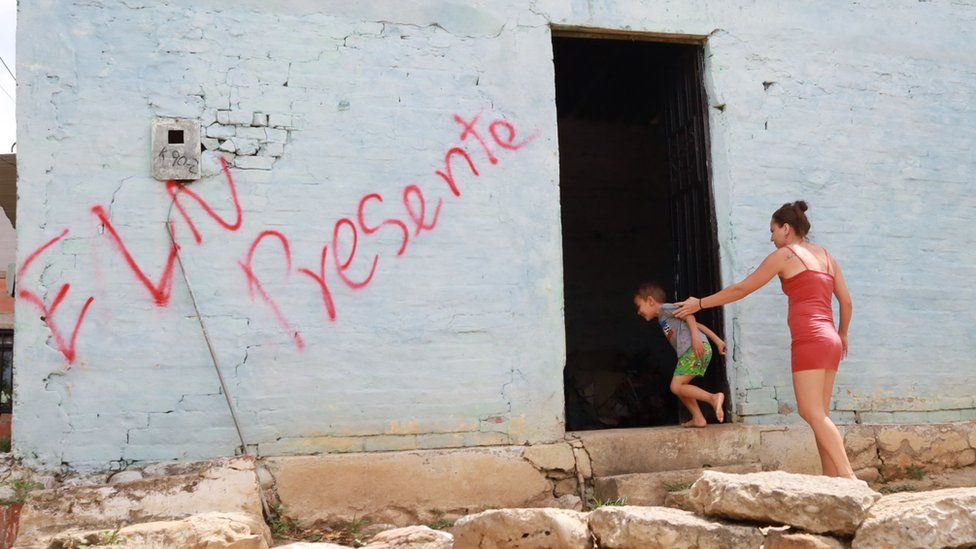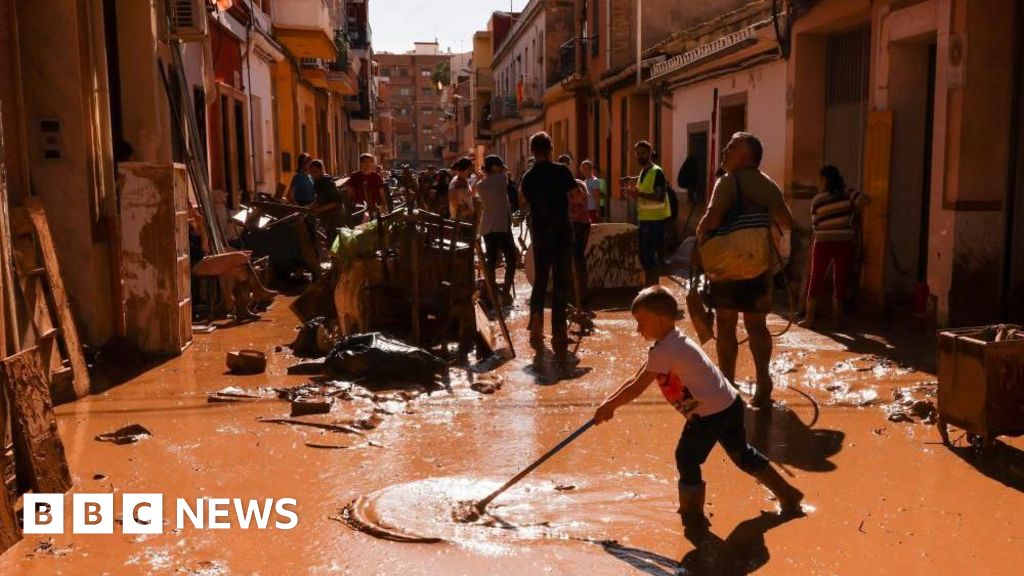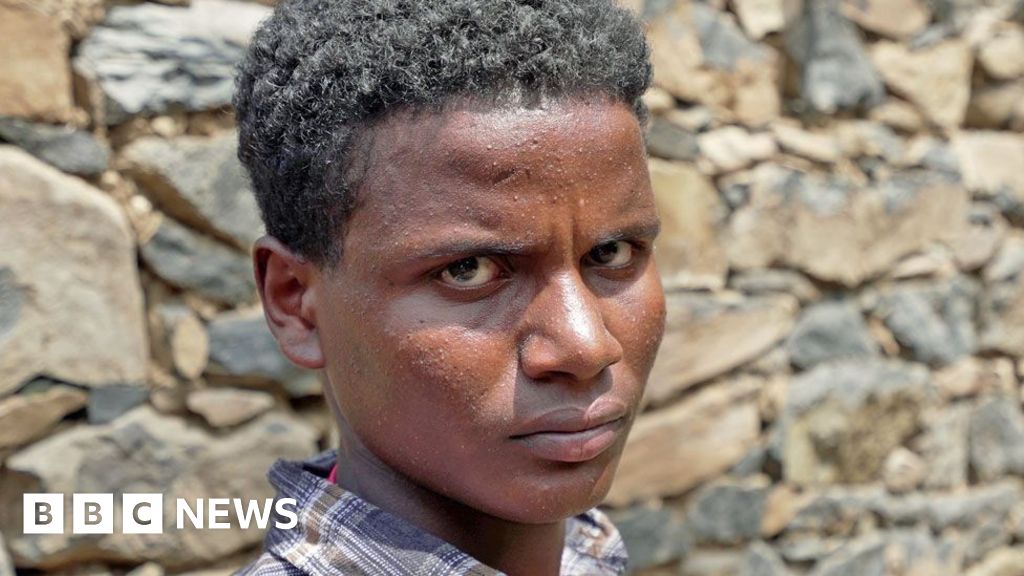ARTICLE AD BOX
 Image source, EPA
Image source, EPA
A wall of a house marked with graffiti of the ELN guerrilla group
By Will Grant, Central America Correspondent & Kathryn Armstrong in London
BBC News
Colombia's government and the country's last active rebel group have agreed a truce - their latest step towards peace after almost 60 years of conflict.
The National Liberation Army (ELN) said it would stop fighting from Thursday, ahead of a full ceasefire in August.
Colombia's defence minister confirmed the armed forces would also be told to halt offensives from that time.
However, the ELN said it would defend itself from any attacks by the military or other armed groups.
The announcement comes after the six-month ceasefire was agreed last week. This is due to come into force on 3 August.
If it holds, it would be the longest halt in the conflict the ELN has agreed to since first taking up arms against the Colombian state in 1964.
But there is scepticism about it succeeding. ELN members killed three policemen in north-eastern Colombia on the day the ceasefire was announced.
And a week earlier, government forces killed six soldiers from the group in the east of the country.
Colombian President Gustavo Petro - himself a former member of the now-defunct M-19 rebel group - promised to bring "total peace" to the country during his presidency when he took power last year.
He has yet to sign the ceasefire decree, according to local media.
The guerrilla group and the Colombian state are due to continue their peace negotiations in Venezuela from August.
Previous negotiations with the ELN as part of the historic 2016 peace deal with the larger Revolutionary Armed Forces of Colombia (Farc) rebel group failed.
That deal has been shaky at times but did still bring an end to the longest guerrilla conflict in the Americas.
The ELN has thousands of members and is accused of getting funds through drug trafficking and illegal mining.
Humanitarian groups have said that thousands of people have been forced to leave their homes due to fighting over territory between armed groups such as the ELN.

 1 year ago
24
1 year ago
24








 English (US)
English (US)